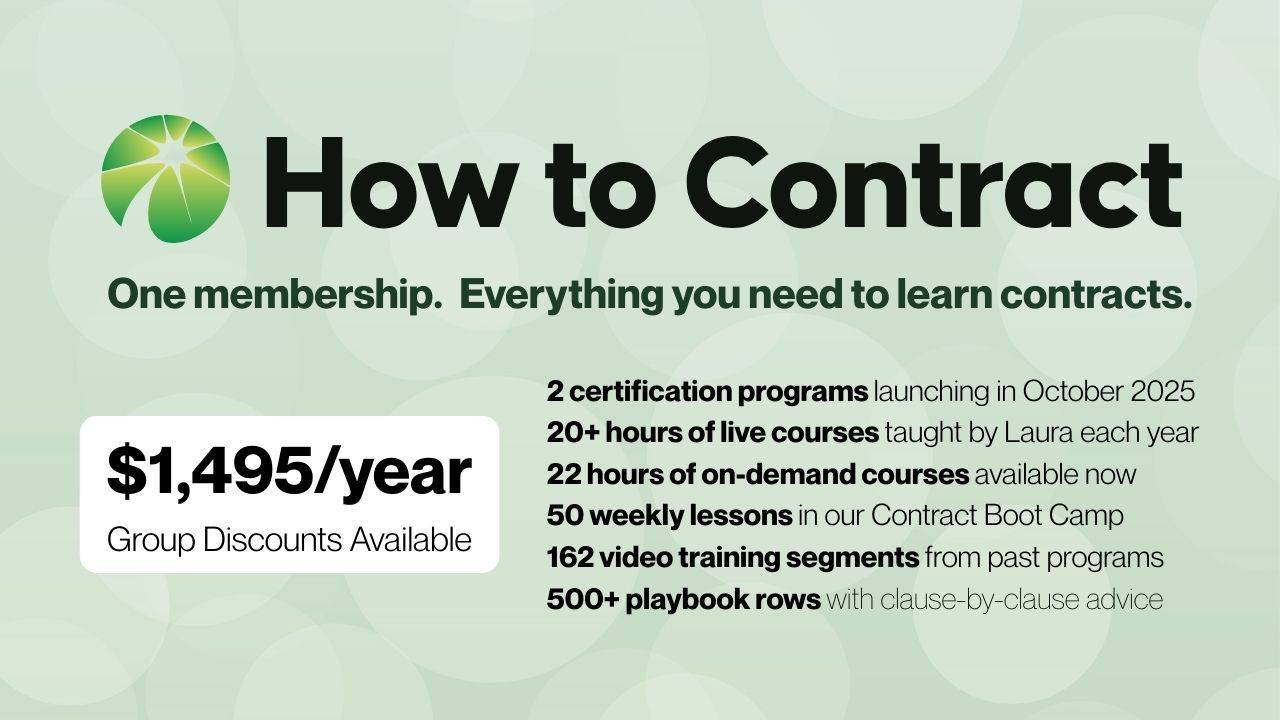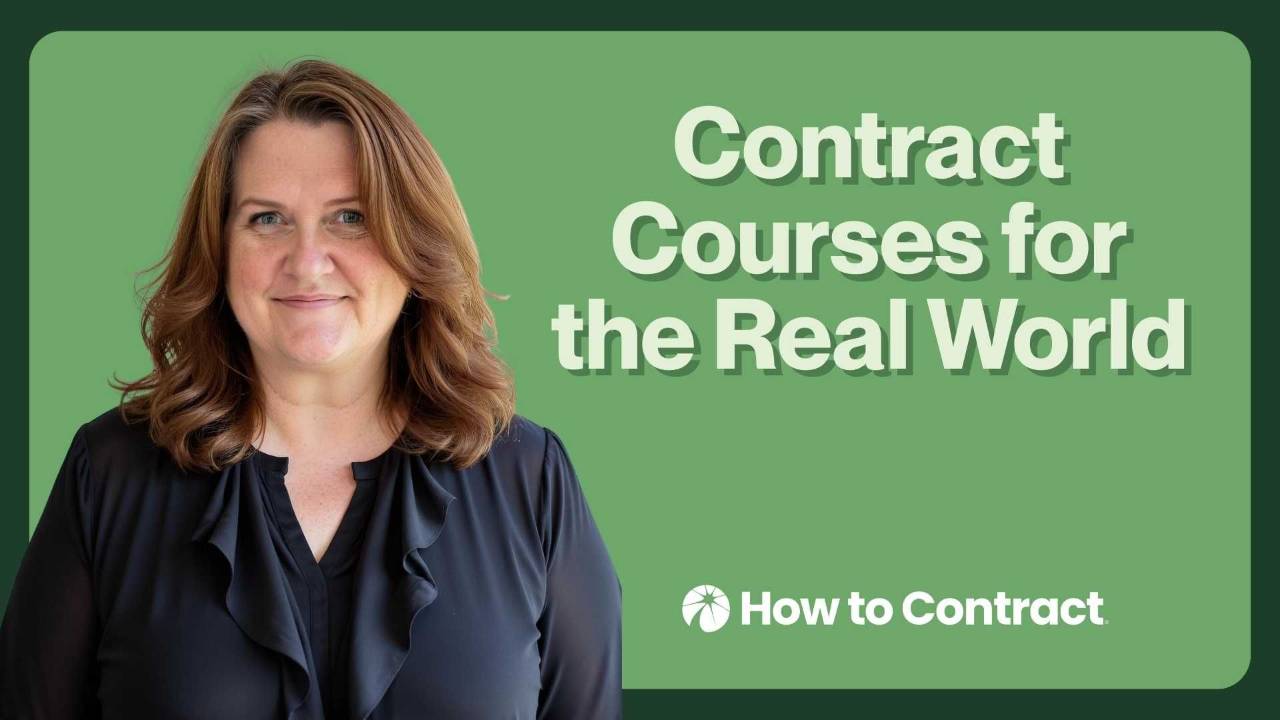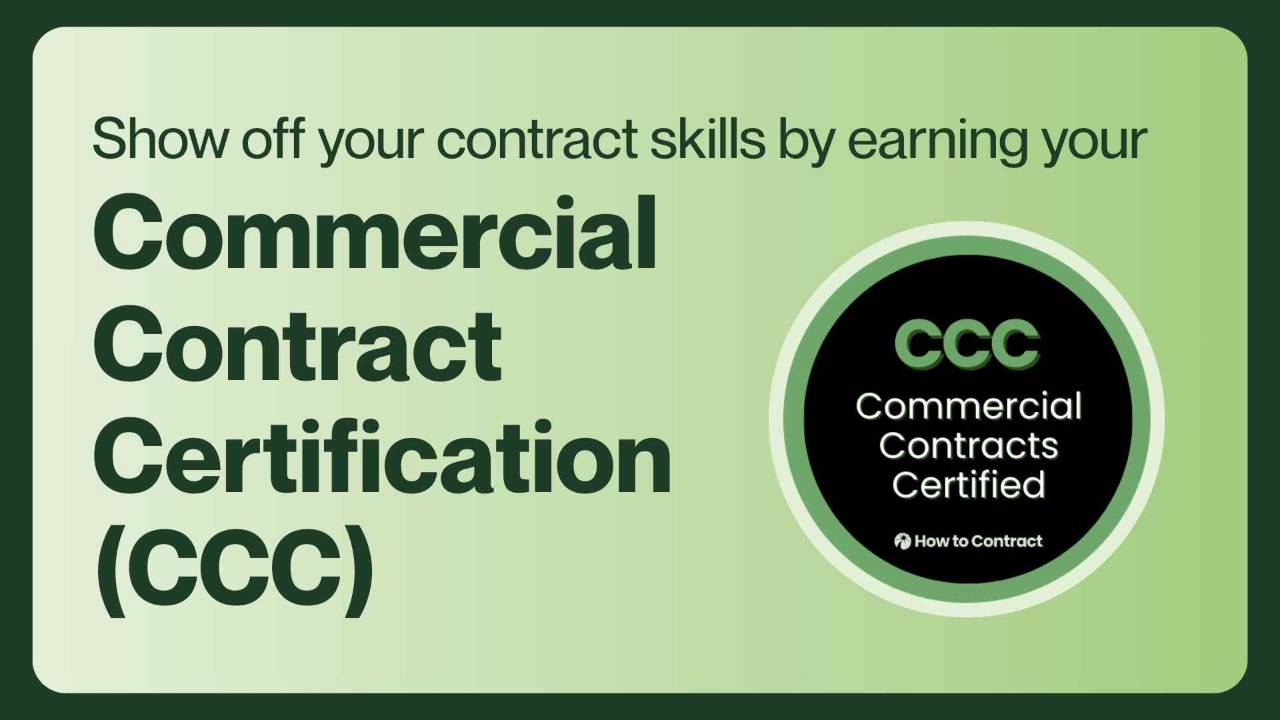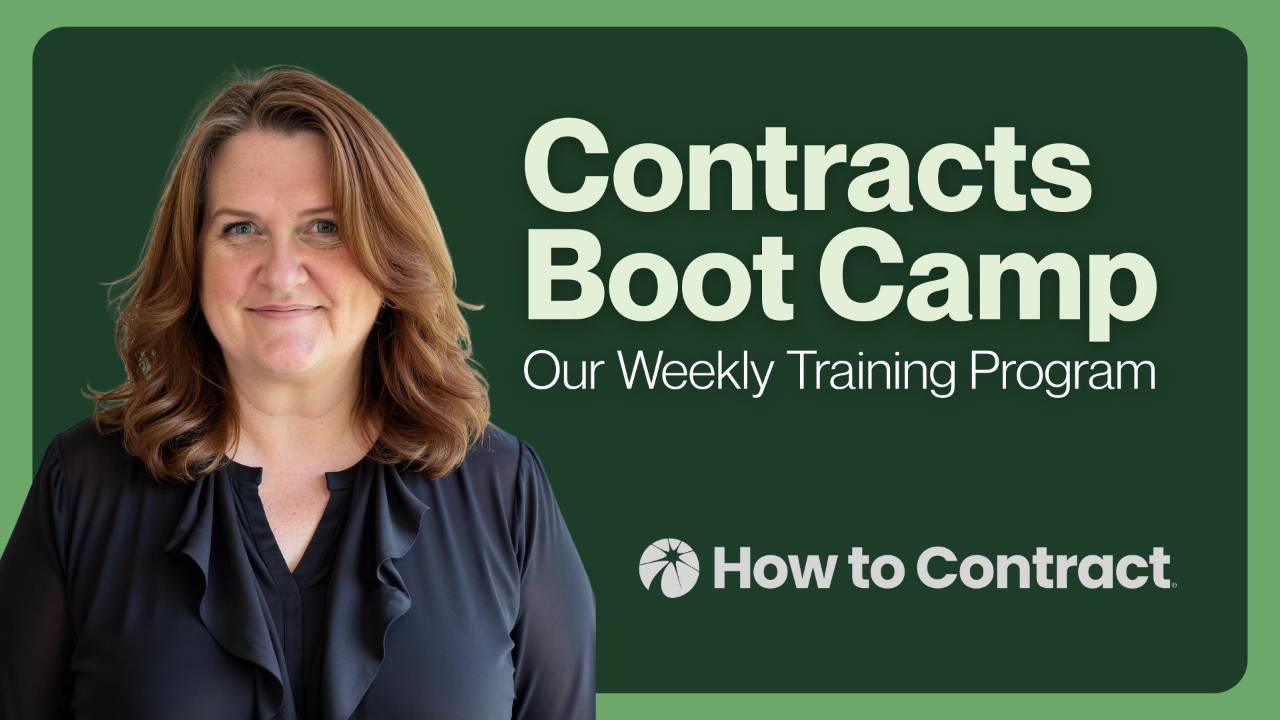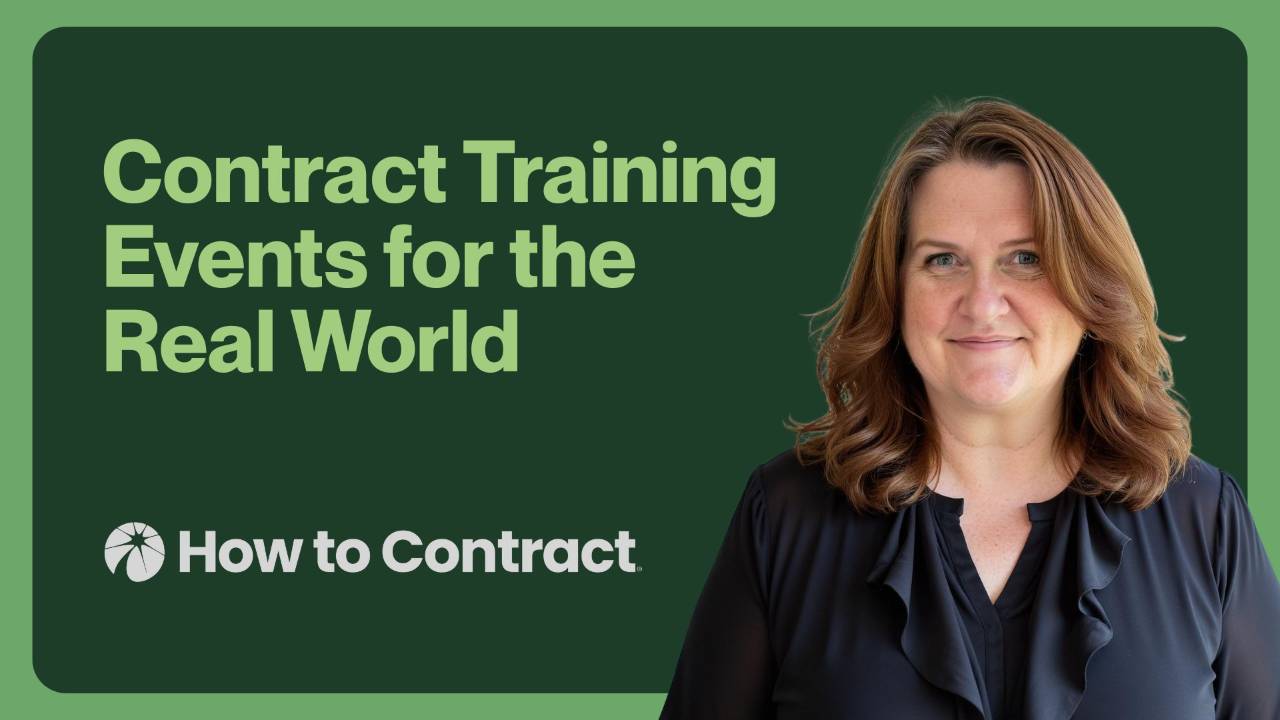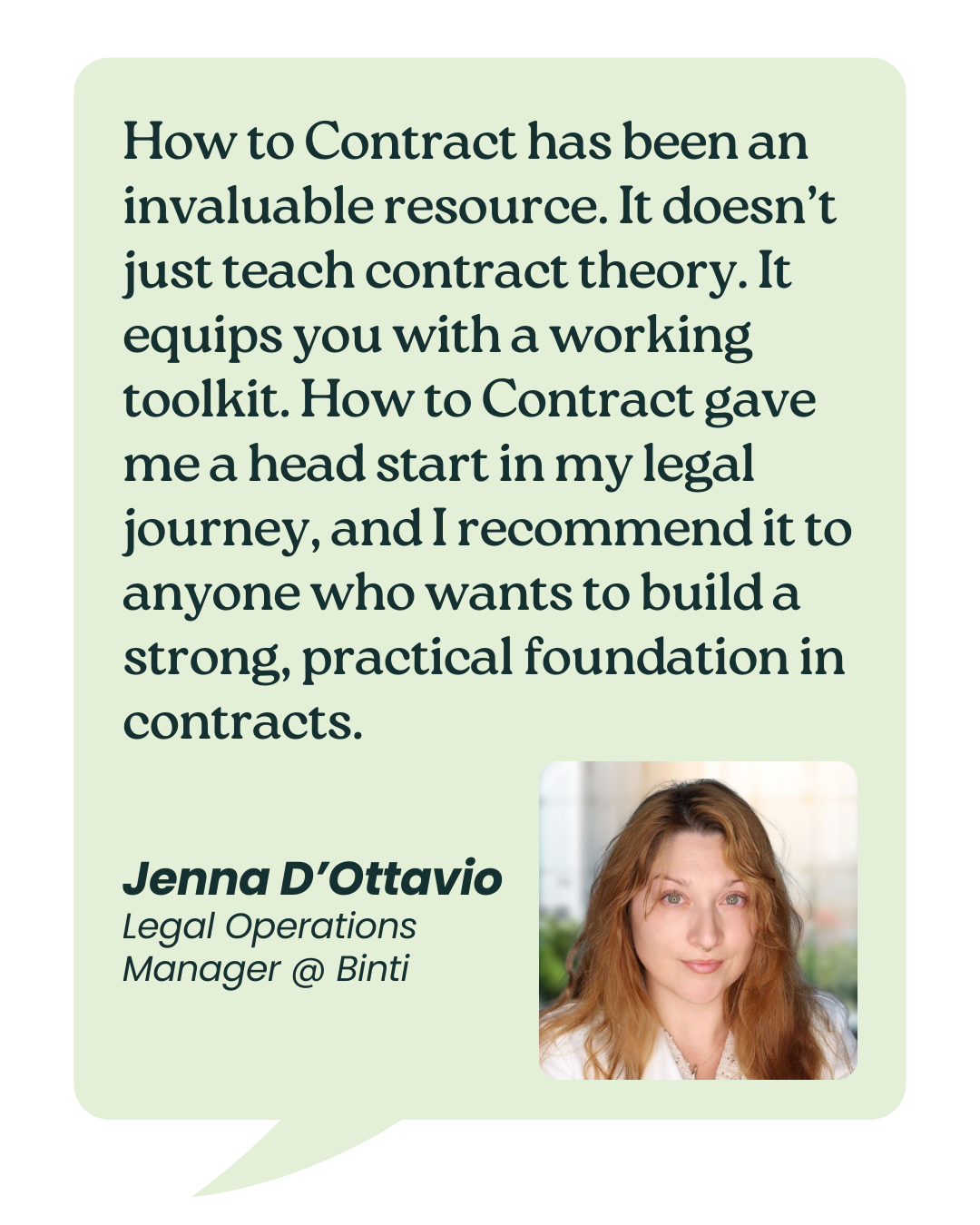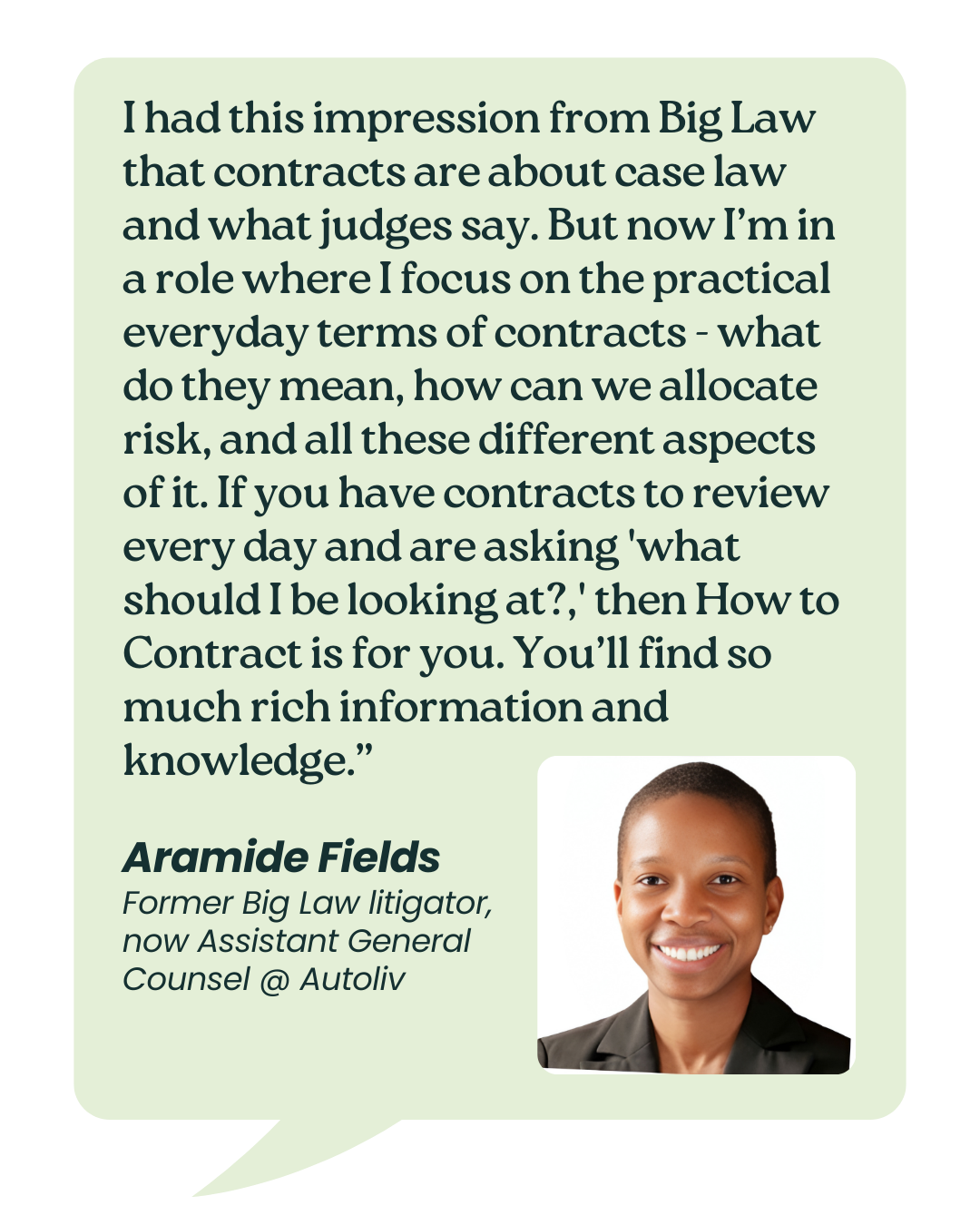
How I Contract: An Interview With Elena Kohn, Associate Divisional Chief Legal Officer at AdventHealth
We talked to Elena Kohn, Associate Divisional Chief Legal Officer at AdventHealth,ss part of our How I Contract interview series. We talk to lawyers and professionals about how they approach balancing legal risk with business objectives.
Early Challenges in Learning Contract Drafting
Did you learn contract drafting in law school?
There are memes out there in the contract law universe that at graduation, a new grad can tell you only that the document they are looking at is a contract. My experience was similar. Although I really enjoyed contract law and all things corporations — and business — law, I could not draft a contract to save my life when I graduated from law school.
Learning Contract Skills in BigLaw
How did you learn to draft contracts?
After graduation, I worked for BigLaw and was fortunate that several partners there spent time teaching me how to draft and how to draft well. They painstakingly went over every word I drafted and corrected it. Was it embarrassing and painful? Perhaps. Did it make me a better lawyer? You bet!
Important Lessons from Early Contract Experience
Do you remember any significant events or lessons you learned in the early days of learning how to draft contracts?
After a few months of learning how to draft and having my drafts mercilessly corrected, I remember that it clicked at one point and that I realized that a contract is similar to a puzzle where every piece (every definition if we are talking about contracts) has to fit just right to create a masterpiece.
Mentors Who Shaped My Contract Expertise
Who was the mentor who taught you the most about real-world contract drafting and negotiating?
Several partners in BigLaw were instrumental in teaching me how to draft. As for negotiation, it was life experiences and common sense that taught me how to negotiate logically, professionally, and in the best interest of my client. It was also fearlessness because, four years out of law school, I accepted a solo GC position at a healthcare company, which meant negotiating almost every contract on my own.
Evolving Views on Contract Negotiation
How did you view negotiating when you were starting out?
I believe this universal rule applies: when you first start out, you see risk everywhere, in every sentence, and so you fight every single point. With time and experience, you realize that not all points are worth fighting over, so you become more strategic and choosy.
Overcoming Imposter Syndrome in Legal Practice
Do you ever feel imposter syndrome when you are working on contracts?
In the legal profession, we are not given enough time to master everything because the law keeps changing and evolving. Therefore, unless someone is emotionally unintelligent, one always has moments of imposter syndrome. A healthy way to approach such moments is to acknowledge that there are certain aspects the other side might know better, then read up on those aspects and improve. All of these moments are opportunities to learn and evolve. Humility in realizing one’s limitations is key to continuous success. Let’s reframe imposter syndrome as a key to success and an opportunity to learn and improve one’s craft.
Advice for Those Interested in Contract Careers
What advice do you have for someone interested in working on contracts as a career?
Well, this is a no-brainer. I highly recommend attending Laura Frederick’s ContractsCon, where you could be exposed to the main contractual provisions so that you could understand how they work in practice.
Navigating Difficult Counterparties in Negotiations
What advice do you have for dealing with difficult counterparties?
Be courteous and patient. Take the approach of it being the long game. The legal world is a small world, and your reputation is everything. Take time to understand why a counterparty is acting or negotiating a certain way. At the end of the day, when all is said and done, you’d want to complete negotiations knowing that you didn’t compromise your professionalism. Many years after completing a negotiation, I have people write to me on LinkedIn referencing a long-ago negotiation and wishing me well. Wendy Witt quoted Ram Dass to me recently, and I often think of these words now when I find myself in a difficult negotiation: “We are all just walking each other home.”
Managing Stress and Work Demands as a Contracts Lawyer
What advice do you have for managing the stress and work demands that come with working on contracts?
Always look for opportunities to unplug and get away from your computer. Spend time with family and develop hobbies. The practice of law is a marathon, not a sprint. Take responsibility for your own mental health and ensure that you get enough rest so that you can show up as your best self at home and at work. An overworked and stressed-out lawyer is not doing anyone any favors.
My Biggest Lesson in Contract Work
What’s your biggest lesson learned in contracts?
Take the time to understand the underlying subject matter of the agreement. Take a step back before you start redlining. Talk to your business operators to understand what it is they are trying to achieve with this new relationship, what their pain points are, and what their biggest concerns are with this relationship moving forward. Having the background will enable you to become a more strategic drafter and negotiator because you will know what to give up on and what would be a non-negotiable for your client.
Mistakes to Avoid in Contract Negotiation
What mistakes should contract lawyers and professionals avoid when working with contracts? How would you avoid them?
Negotiating and fighting over every little point should be avoided at all costs in favor of building rapport with the counterparty so that you could achieve your client’s major strategic goals.
Common Misconceptions About Contract Work
What is the biggest misconception other lawyers and professionals have about working with contracts?
Perhaps the biggest misconception is that you have to win in contract negotiations. My approach is to establish rapport and a good relationship with the other party as I negotiate an agreement. I’d like to think that when the other party is done negotiating with me, they are thrilled and excited about the new venture they are about to engage in.
Dealing with One-Sided Contract Provisions
What frustrates you the most about working with contracts?
One-sided provisions in agreements. These waste everyone’s time because, of course, I will make important provisions mutual. In addition, it’s hard to process the following statements from opposing counsel: “We know you are right about the underlying law, but we cannot change this provision because it is our policy to do it this way anyway.”
Why I Enjoy Working with Contracts
What do you enjoy the most about working with contracts?
A well-drafted contract is a work of art. It’s enjoyable to pick up a well-drafted contract and understand exactly what the parties were looking to achieve with it. For that to occur, the drafters must master the subject matter and understand it so well that they could explain it to a 5-year-old. That is my litmus test.
Simple Tips to Improve Your Contract Skills
Are there any simple hacks our readers can use right away to improve their contract drafting and negotiation skills?
A contract negotiation, just like everything else in life, could benefit from a higher emotional intelligence. So listen more and talk less. Learn more versus impart knowledge. In addition, Laura’s How to Contract contains practical drafting tips, and Kwame Christian’s Negotiate Everything podcast has useful tips on actual negotiations.
How to Contract's membership is designed to help you build real-world expertise with commercial contracts. Get access to our comprehensive system of live and on-demand courses, weekly lessons, detailed playbooks, and more. Join today!

